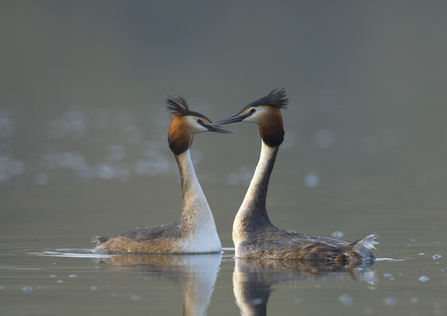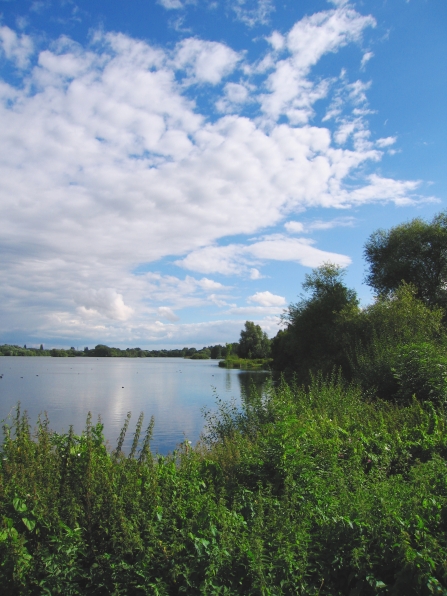As the schools break up in mid/late-July, it’s the height of the travelling season for many people, with holidays in Europe and beyond. For ducks, it’s very different. During July and August they are moulting - shedding old, worn feathers and growing new ones. Unlike most birds, they lose all their flight feathers at the same time which means that they are unable to fly for a few weeks. Whilst most male ducks, the drakes, have quite bright and showy plumages for most of the year, this is a disadvantage when they are unable to fly. During this time it’s best if they blend into their surroundings and avoid potential predators. To achieve this, they complete a full head and body moult to a combination of brown feathers such that they look more like female ducks, which are generally dowdier in appearance, an advantage when brooding eggs during the breeding season. This dowdy plumage is known as eclipse. After growing new flight feathers they complete another body moult through which the bright breeding plumage is attained once more.
During the moult the ducks are extremely vulnerable and seek out quiet, undisturbed, safe wetland havens with plenty of food. In our busy counties there are only a few places that fit the birds’ requirements and these places are high priorities for conservation. In the Colne Valley, our research has shown that the key sanctuary is Broadwater Lake, Site of Special Scientific Interest (SSSI), at Harefield. The lake is noted to be important for moulting water birds, notably Tufted Duck, Coot and Great Crested Grebe. Tufted Duck first established a moult refuge at Broadwater Lake in the 1970s and in 2023 a moulting flock of 360 birds was recorded.





